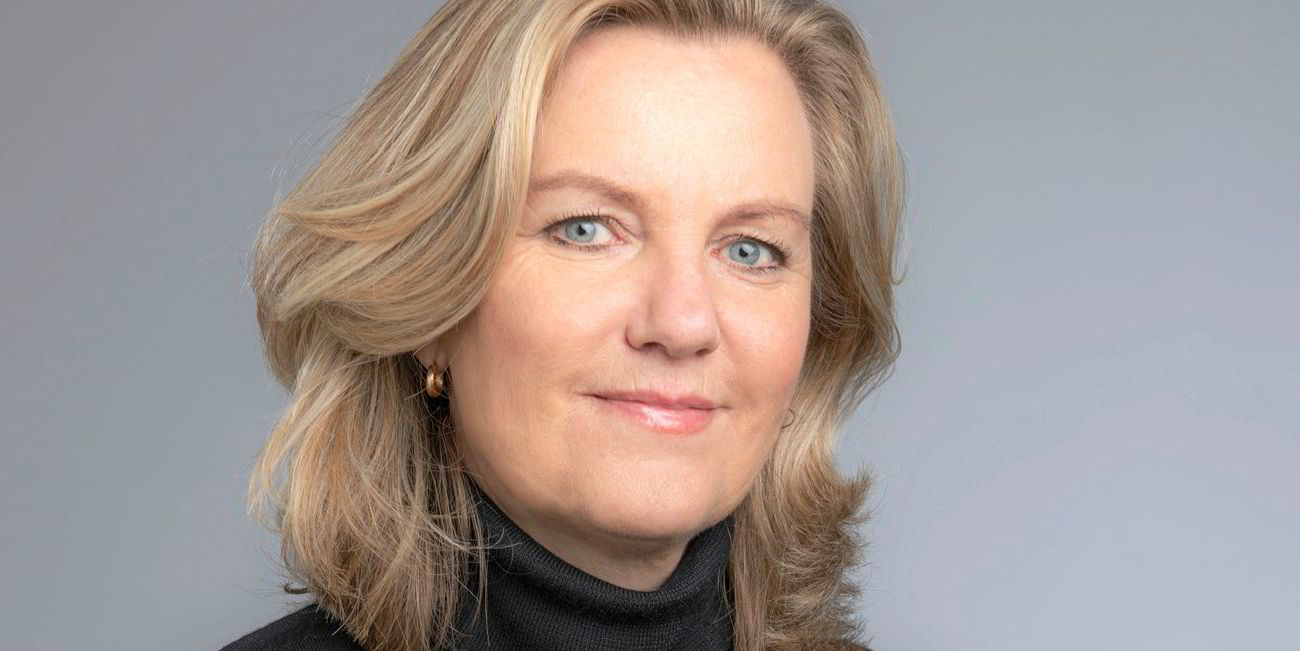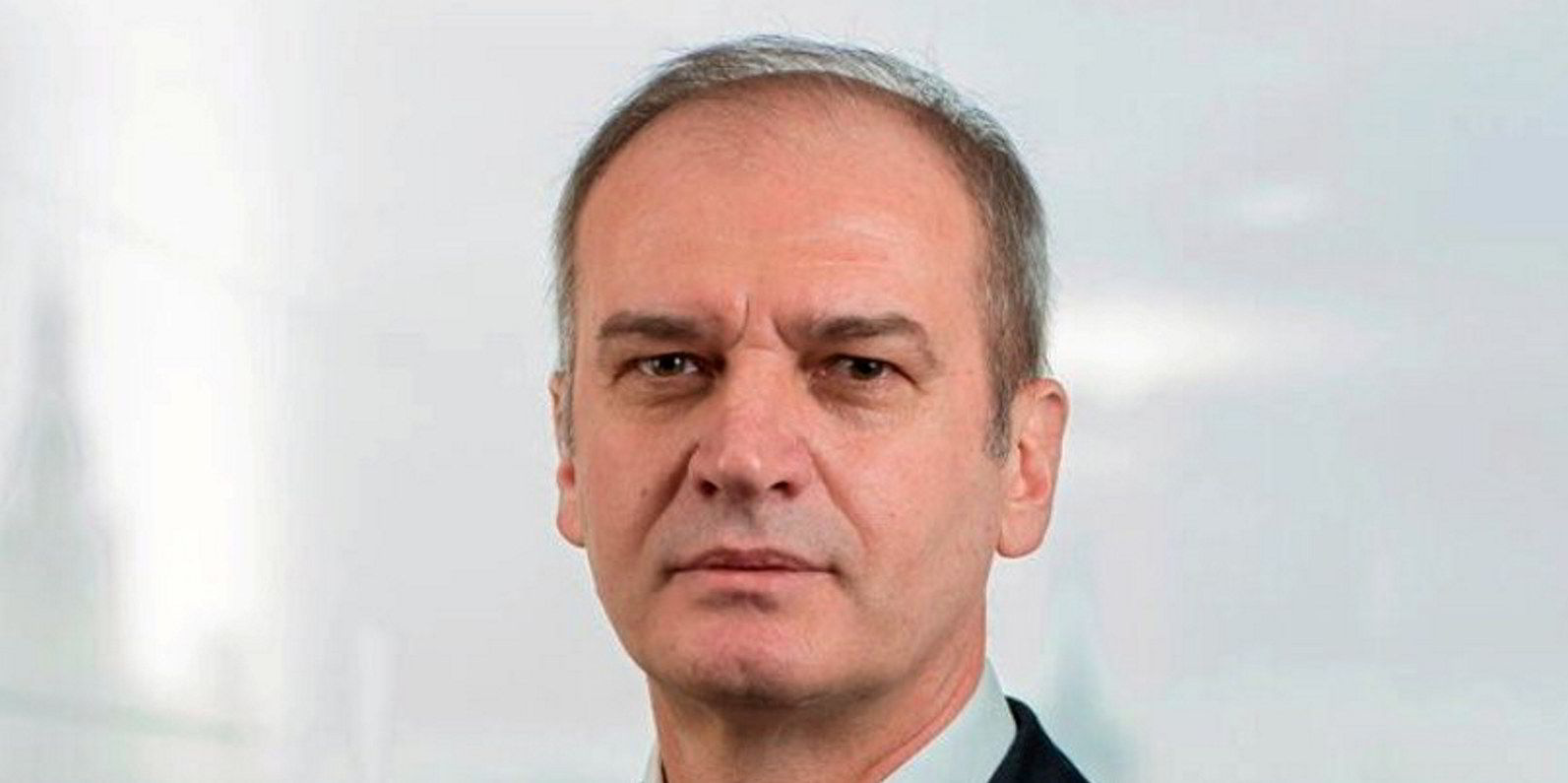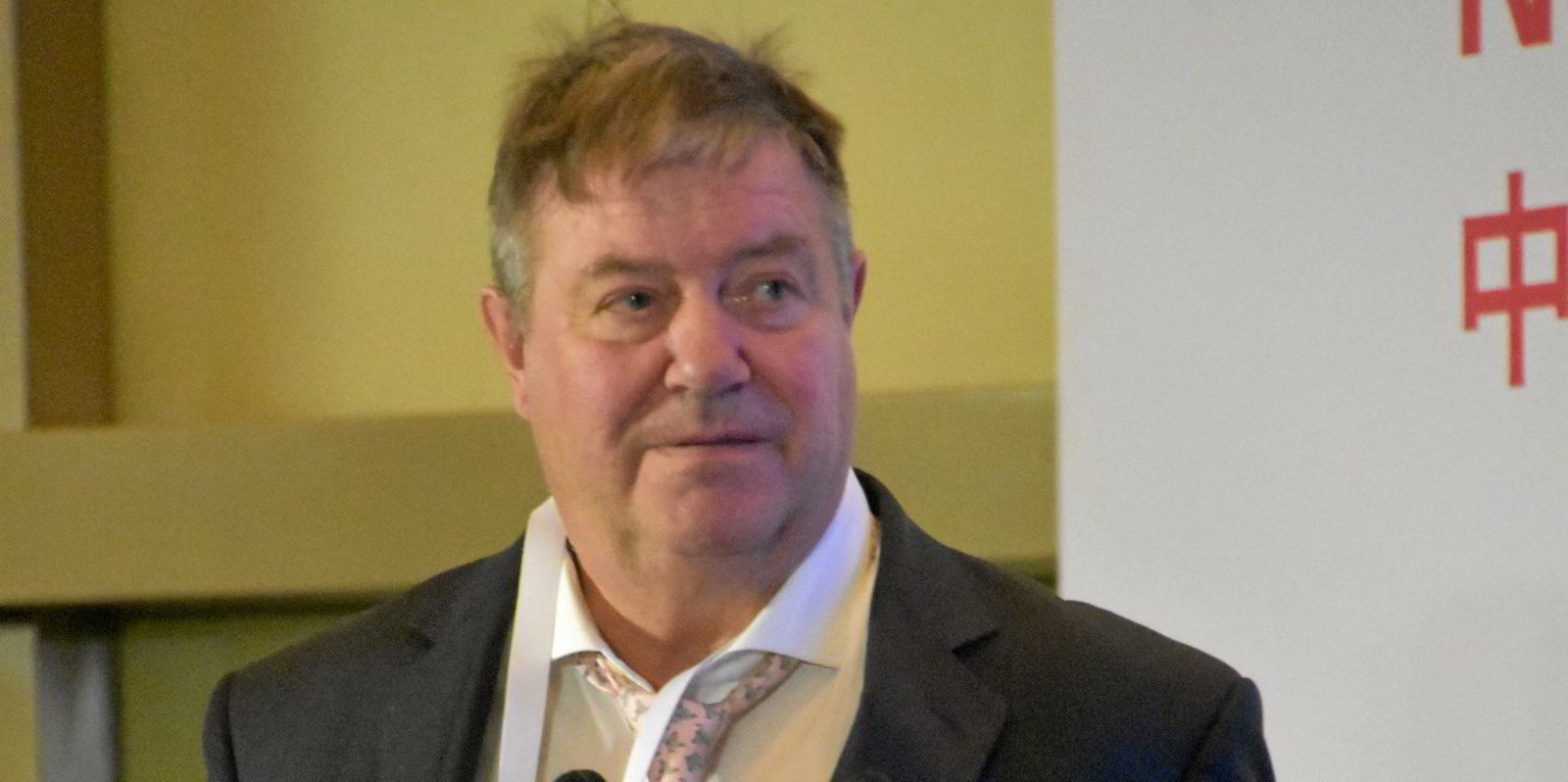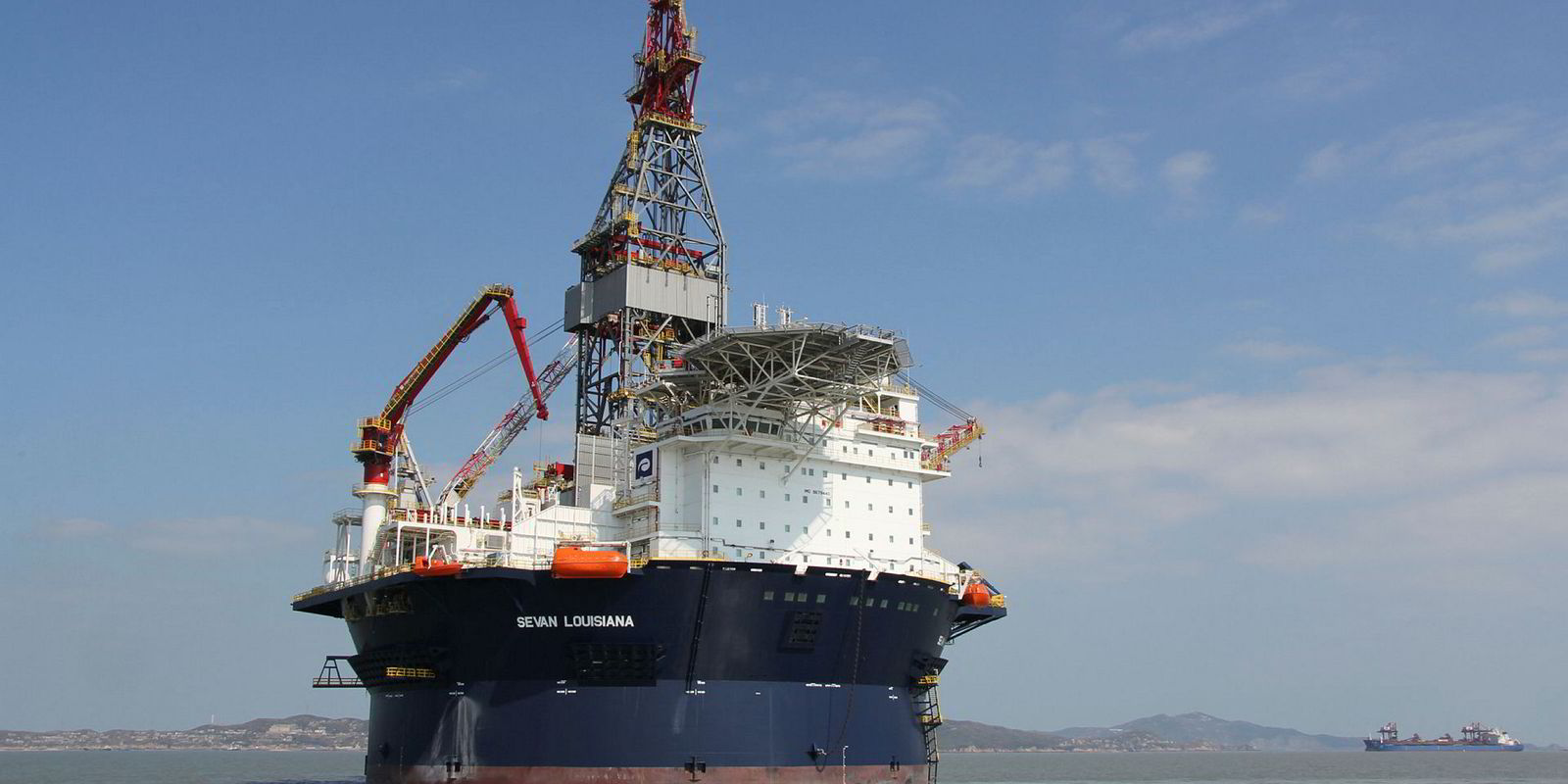Low-key Norwegian offshore shipowner SeaLoading is marketing its new-design cargo transfer vessels and is expecting earnings of around $65,000 per day for each.
It is approaching investors with plans to build a fleet of the vessels, pending the outcome of a key trial charter with Brazilian oil major Petrobras.
The Arendal-based company is pitching the ships as a low-cost, low-carbon alternative to shuttle tankers.
SeaLoading is 50% controlled by Mitsui OSK Lines following a 2019 buy-in, while Arne Smedal and family members hold the majority of the Norwegian side of the shareholding.
In a May 2021 investor presentation seen by TradeWinds, SeaLoading and advisor Fearnley Securities told investors the ships can do the work of shuttle tankers with significant time, money and carbon savings.
SeaLoading's two ships already on the water, the 6,500-gt SeaLoader 1 (built 2018) and SeaLoader 2 (built 2019), are touted as cutting the delivered price of crude oil by $1 to $2 per barrel by allowing conventional oil tankers to load from a floating production storage and offloading unit, eliminating the need for shuttle tankers and onshore storage.
The pitch to investors to fund a fleet of four to six vessels within five years and up to 20 by the end of the decade comes at a time when the ageing world shuttle tanker fleet of 77 ships is not being replaced, with all 12 newbuildings on order already committed to specific projects.
Sources familiar with the project said the SeaLoader 1 is already on a five-year time charter to Total, and TradeWinds has learned that Petrobras is set to take the SeaLoader 2 on a trial time charter.
'40,000 cars off the road'
If successful, the Petrobras charter could be extended and also give SeaLoading an opening to offer its loading solution to compete with shuttle tankers in their biggest market, Brazil.
Chief executive Lars Ola Tan Almas declined to disclose the rate on the current charter with Total or to confirm the Petrobras charter.
But in the SeaLoading investor presentation, a $65,000-per-day rate is used as a basis for earnings calculations, and one source informed about the project characterised that as "an estimate that is not taken out of thin air".
The ships from Cosco Shipyards were built at a time when yards were eager for work, but Almas would not comment on the price.
"If you ask a shipowner if he got a good price, the answer will always be no," he said.
Almas expects the new design to be used in parallel with shuttle tankers, not to replace them.
"By simplifying the logistical process, you reduce the energy needed to get oil into the supply chain," he said. "And that matters most for the customers with big production numbers. The bigger the volumes, the bigger the savings."
Time to develop
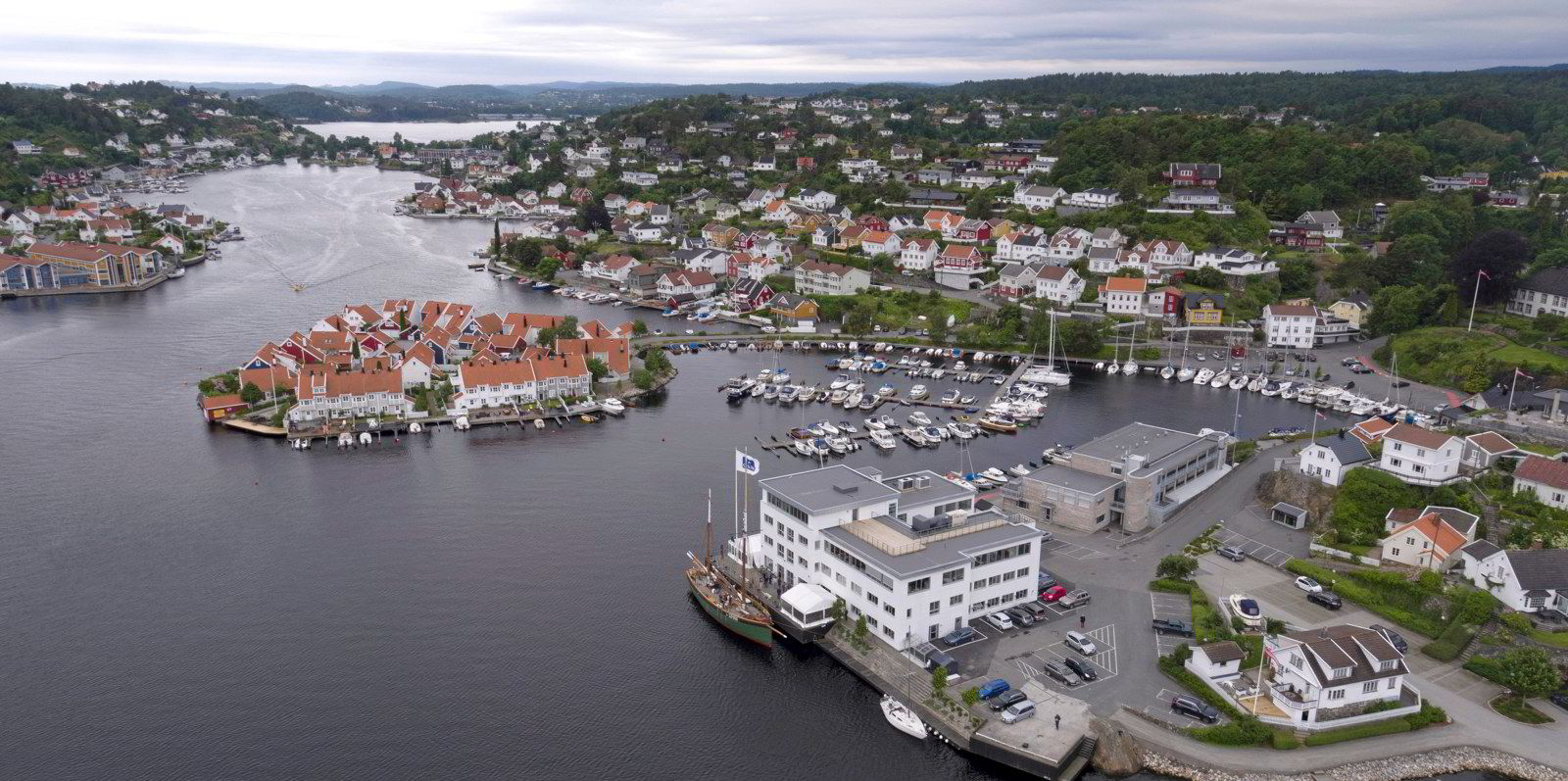
According to a DNV report on the SeaLoading design, the ships can save up to 79% of carbon emissions if used instead of shuttle tankers. The classification society found that one such ship at a representative Brazilian field could save 188,000 tonnes of CO2 emissions a year, the equivalent of taking 40,000 cars off the road.
The ships can also be used to transfer LNG or ammonia with a change of hoses and other cargo equipment.
SeaLoading's vessels are technically managed by Arendal neighbour OSM.
Shareholder MOL is an "active owner", and Almas said several departments of the Japanese shipping giant are getting involved in operations.
MOL's other investments in offshore include the shuttle tankers of another Norwegian joint venture, Viken MOL, as well as Brazilian and Mexican FPSO projects with Japanese company Modec.
Almas said post-delivery work with Total on SeaLoading's prototype vessel plus Covid-19 kept the two vessels out of the market until, respectively April 2020, and now. The lead time on further newbuildings would be about two years, although Covid-19 could complicate that as well.
The cargo transfer vessel concept dates to a sketch that shipping and offshore entrepreneur Smedal made in 2013 while trying to develop improvements for crude oil transshipment.
SeaLoading was founded in 2014 to develop the design.
Almas, a former Gard lawyer, spent five years working as associate legal counsel on shuttle tanker and FPSO matters at Teekay Offshore, and was Teekay's representative on the board of Smedal's former company Sevan Marine.

